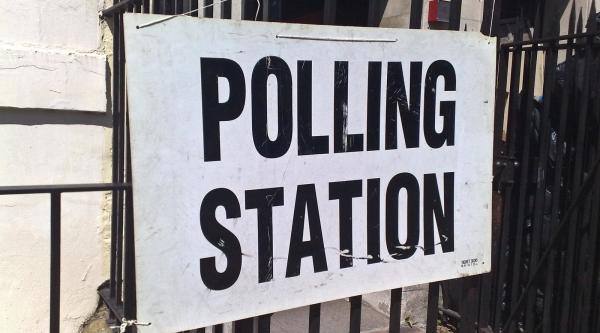Discounts, disregards and exemptions on council tax
Some people will be eligible for discounts, disregards and exemptions on their council tax. All of these terms have different meanings, so it’s important to know the difference.
Council tax and dementia
- Council tax and dementia
- You are here: Discounts, disregards and exemptions on council tax
- Support with council tax
Some people with dementia and their carers will not have to pay full council tax. This may be because:
- The property is exempt.
- The people living there are disregarded (ignored in the calculation so they don’t pay it).
- The people living there are eligible for a means-tested discount.
Any of the above can mean that no council tax is due or there is a discount on the council tax bill.
What's the difference between discounts, disregards, and exemptions?
Do people with dementia have to pay council tax?
People with dementia could be disregarded from paying council tax (meaning they may not need to pay it) if they are classed as
‘severely mentally impaired’. However, this is only if they meet the following criteria:
- They have a ‘severe impairment of intelligence and social functioning which appears to be permanent’. They have a certificate confirming this impairment from a registered medical practitioner. This is usually the person’s GP or consultant.
- They are entitled to certain disability benefits. The most common qualifying benefits are:
- Attendance allowance.
- Universal credit (with the limited capability for work premium).
- Personal independence payment (either of the two daily living component rates).
Exemptions apply to properties, not people. For example, if all people living in the property are severely mentally impaired and disregarded, the property will be exempt. This means no payment is due. This is a ‘class U exemption’.
If the person with dementia does not live alone, the property won’t be exempt, but they can still be disregarded. This means they won’t be counted for council tax purposes and a discount is applied instead.
If two or more adults who aren’t disregarded live with the person with dementia, there will usually be no reduction in the overall council tax bill. This is the case even if the person with dementia has a severe mental impairment.
If all people living in a property are disregarded but not all under the severe mental impairment criteria, the property won’t be exempt from council tax. Instead, the property will be treated as if it is empty and council tax may still be charged at a reduced rate. See ‘Empty properties’ below.
How to apply for a ‘severe mental impairment’ disregard
In England, a severe mental impairment disregard application form will be available from your local council. Make sure it is the correct form. It should not ask for details of income or savings.
In Wales, there is a standard form available on www.gov.wales/council-tax-discounts-and-reduction/severely-mentally-impaired
Some medical professionals may have different views from others about when a person qualifies as severely mentally impaired. If your GP is unwilling to sign a certificate confirming severe mental impairment, you could ask a consultant, or
another GP at your practice. Medical professionals cannot legally charge for this service.
Backdating for discounts, disregards and exemptions
Even if an exemption, disregard or discount wasn’t applied for immediately, it can be backdated to when it should have first applied. There is no time limit set in law. However, you will usually need to prove that you met the criteria at the time.
In England, some councils will backdate to the date council tax began (April 1993) if the person was eligible. However, some councils restrict backdating to a maximum of six years from the date of requesting it. Each local authority will have their own backdating policy.
In Wales, backdating for those with a severe mental impairment is standard across all local authorities. It can be backdated to the date of diagnosis.
Appeals
If an application for a discount, disregard or exemption is refused, and you are unhappy with the decision, you can make an appeal to your local authority. If this is refused, you have a further right of appeal to the Valuation Tribunal in England or Wales. This must be done within two months of receiving the decision.
Living with a carer
A spouse or partner of a person with dementia will not get a discount or disregard simply by being a carer. However, someone living with and caring for a partner with a severe mental impairment will get a 25% ‘single person’s discount’ on their council tax. This applies as long as there are no other adults living in the property.
Some carers and care workers can be disregarded for council tax if they fall into one of two groups. In either group, the carer can be disregarded even if the person with dementia does not meet the severe mental impairment criteria.
Which carers are disregarded for council tax purposes?
The first group of carers who are disregarded for council tax must meet all the following criteria – they must:
- Care for at least 35 hours a week.
- Live in the same property as the person they care for and not be their partner.
- Not be the parent of the person they care for, if the person cared for is aged under 18.
In addition to the above, the person being cared for must be entitled to one of the following benefits:
- Disability living allowance (middle or highest rate of the care component)
- Personal independence payment (either rate of the daily living component)
- Attendance allowance
- Constant attendance allowance
- Armed Forces independence payment
The second group of carers disregarded for council tax must meet all the following criteria – they must:
- Provide care or support on behalf of a local authority, government department or charity OR provide care through an introduction by a charity if the person with dementia is the carer’s employer.
- Be employed to care for the person for at least 24 hours a week.
- Be paid no more than £44 per week live where they provide care.
A carer who is in either of these groups is treated as disregarded. This type of disregard doesn’t mean that the property will be exempt for council tax purposes, but the council tax bill should be reduced.
More than one person in the same property can count as a carer, where caring responsibilities are being shared.
Peter has Alzheimer’s disease and is disregarded for council tax under the severe mental impairment rules.
He lives in a house with Lina, his daughter. Lina is also disregarded for council tax because she is recognised by the local authority as his carer (see Group 1 of the criteria list). Therefore, because both Peter and Lina are disregarded, this property is being treated as if no one is living there under council tax rules. This means they are eligible for a reduced council tax bill. See ‘Empty properties’.
Empty properties
Empty properties aren’t usually exempt from council tax, but the local authority may reduce the council tax bill. However, there
are some situations when a property is left unoccupied and council tax is not charged, such as:
- Someone with dementia who has moved into hospital or a care home, or
- Someone who has gone to provide care for a person with dementia.
Most properties that are unoccupied for two years or more don’t qualify for a discount. They may even face an increase in council tax, depending on the local council.
If all the people living in a property are disregarded, but no exemption applies, the property will be treated as if no one is living there. Under these circumstances, the property would usually incur a charge of 50% of the full council tax. The local council will provide details of the charges for the property.
Under local council tax support schemes, many local authorities have changed the rules for how these exemptions apply.
This depends on why the property is empty.
Council tax reductions for people with disabilities
It is sometimes possible to claim a reduction on the council tax bill if someone living in the property is assessed as being substantially and permanently disabled. This is if they require special facilities to meet their needs. This could include:
- A room that is mainly used by the person who is disabled.
- An extra bathroom or kitchen.
- Space inside the home so that a person can move around in a wheelchair.
If this is the case, the bill will be reduced to the rate of the band below the one the property is in. For example, someone living in a band C property would be charged the rate for the cheaper band B property.
Those with band A properties (the lowest band) will have their bills reduced by one-sixth. This reduction can be applied in addition to other discounts, disregards and exemptions.








Certain people will get a discount and will therefore pay a reduced rate of council tax. There are a few different types of discount available. The most common example is that anyone living on their own, or treated as living on their own (see ‘Disregards’ below), is entitled to a 25% reduction on their bill. This is called the ‘single person’s discount’.
Disregards may apply to people living in the property. People who are disregarded are not counted for council tax purposes. For example, if two people are living together and one is disregarded, it will be charged as if the other person lives alone, and they will get a 25% single person’s discount on their council tax.
There are different types of disregards based on the reasons for them. These different types are important because of how they affect exemptions (see ‘Exemptions’ below).
Exemptions apply to properties, not people. An exemption means the whole property is excluded from council tax and there is nothing to pay. For example, when the only people occupying the property are disregarded because they are severely mentally impaired, a ‘class U exemption’ applies, meaning no payment is due.
If all the people living in a property are disregarded but not all under the severe mental impairment criteria, the property won’t be exempt from council tax. Instead, the property will be treated as if it is empty and council tax may still be charged. See ‘Empty properties’ below.